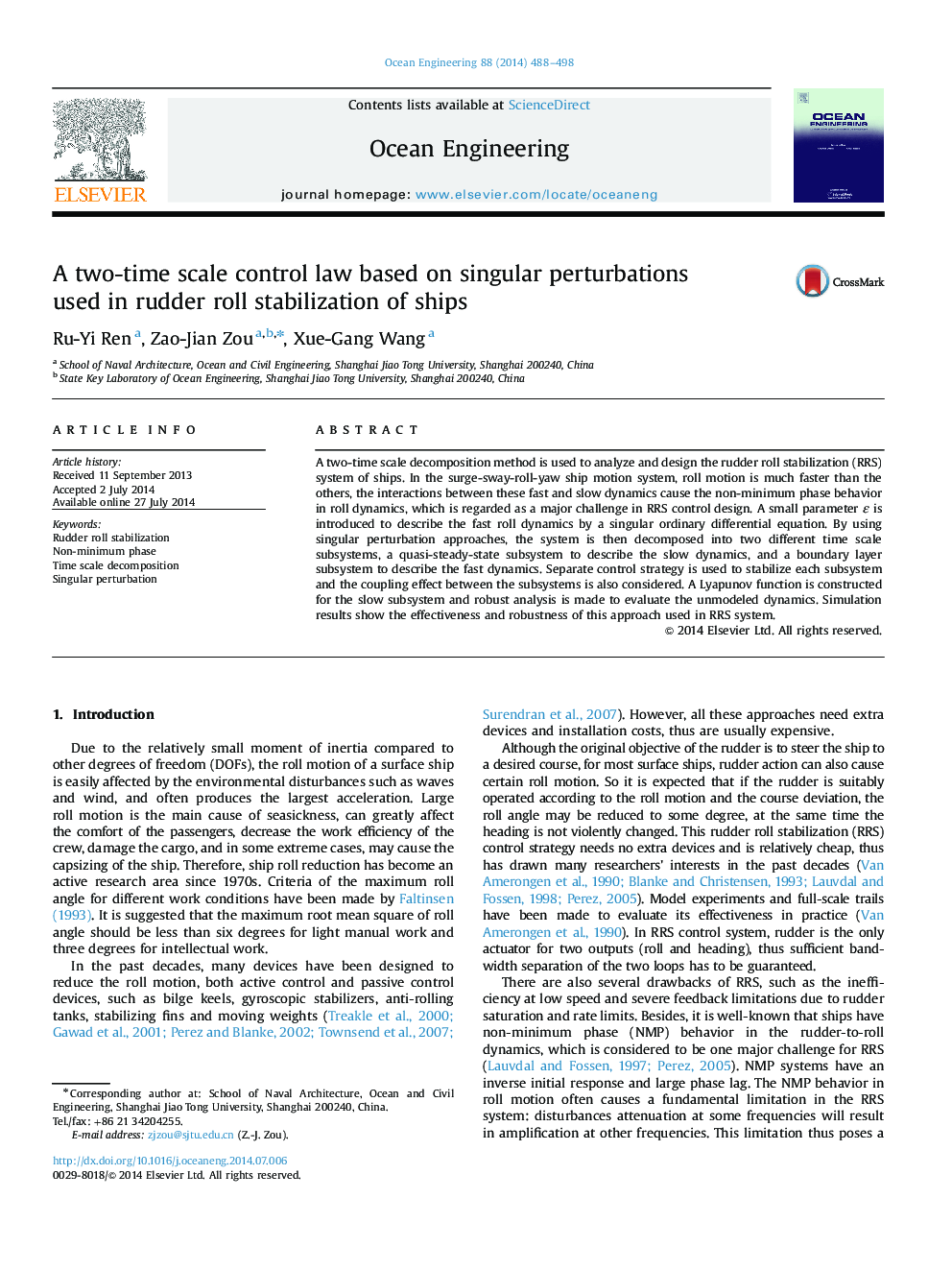| کد مقاله | کد نشریه | سال انتشار | مقاله انگلیسی | نسخه تمام متن |
|---|---|---|---|---|
| 1725638 | 1520702 | 2014 | 11 صفحه PDF | دانلود رایگان |
• Time scale decomposition method is used to design a RRS control law.
• Singular perturbation method is used to separate different time scale dynamics.
• Separate control law is designed in different time scale subsystems.
• Unmodeled dynamics is evaluated.
• The linear model has a similar performance to the nonlinear model in RRS.
A two-time scale decomposition method is used to analyze and design the rudder roll stabilization (RRS) system of ships. In the surge-sway-roll-yaw ship motion system, roll motion is much faster than the others, the interactions between these fast and slow dynamics cause the non-minimum phase behavior in roll dynamics, which is regarded as a major challenge in RRS control design. A small parameter ε is introduced to describe the fast roll dynamics by a singular ordinary differential equation. By using singular perturbation approaches, the system is then decomposed into two different time scale subsystems, a quasi-steady-state subsystem to describe the slow dynamics, and a boundary layer subsystem to describe the fast dynamics. Separate control strategy is used to stabilize each subsystem and the coupling effect between the subsystems is also considered. A Lyapunov function is constructed for the slow subsystem and robust analysis is made to evaluate the unmodeled dynamics. Simulation results show the effectiveness and robustness of this approach used in RRS system.
Journal: Ocean Engineering - Volume 88, 15 September 2014, Pages 488–498
